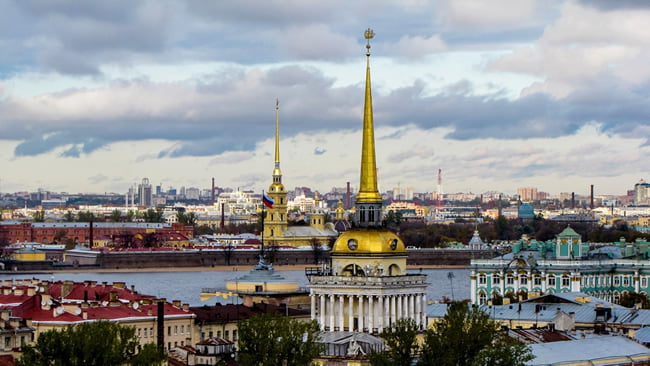Website Translation into Russian: 5 Things to Consider
Nowadays, the power of content is growing rapidly, becoming a key aspect of a successful business. More and more brands understand the purpose of a good, engaging website with interactive content; to help create trustworthy relationships and bond with your potential consumer.
Because the majority of Russians do not communicate well in English, if you plan to market to a Russian audience you should consider translating your website into Russian for the most impact.

5 Things to Consider for Website Translation into Russian
-
Content Management System
You have to know your CMS as well as its capability integration. Your web team will be aware of all the necessary steps and can participate in choosing the right translation agency. A vital aspect to keep in mind is that the selected agency has to adapt to the company’s workflow and ensure a smooth and easy process of collaboration, establishing credibility. Get the right team on board!
-
Machine vs. Human Translation
Eventually, it comes to choosing your website translation quality options, you might be thinking – human or machine translation? I believe in human touch and attention to detail, however, there are certain industries and areas where machine translation can be utilized or even combined with human proofreading and editing as a polisher. Life Sciences, automotive, pharmaceutical, and manufacturing are primary users of combined MT technology and human translation. Making the right decision here can affect communication tremendously.
Native subject matter translators and language reviewers play one of the most important roles in working with your content as they can assure the right fluidity of the words and catch your company’s tone of voice. Your potential translation agency should have a team of qualified native target language professionals that specialize in your market.
-
Search Engine Optimization (SEO)

Creating a multilingual online presence is not as easy as it seems. From website translations to localization of your social media and advertising, there is a lot on your plate. And when it gets to the point of multilingual website SEO, things get a little more complex.
When building a multilingual web page, there are a few crucial SEO factors to consider. Most importantly, you need to ensure that potential Russian consumers find the correct pages for their language and location. Nowadays, people search using Google most of the time, however, Yandex is more popular in Russia. The goal is to use the right SEO strategy and try to forecast what your target audience is looking for in their language and, to predict what Russian keywords they will be typing to find their desired product or service type.
-
Translation Memory Tool
Speaking about another important point, your localization project managers have to share with you the benefits of Translation Memory Tool and how it can be integrated within your projects. It works like a bank with your previously translated content, which will be stored by the tool. This enables the linguistic team to save time completing translations; it also can help save you money when performing updates or repetitive words or sentences. Additionally, it helps maintain communication consistency – so significant for successful businesses these days. Ensure that your localized Translation Memory is updated, saved, and well maintained for future use.
-
Testing & Quality
And last but not least, one of the steps that a lot of companies disregard when translating their website is testing it before going live. That means checking the online version, making sure everything is running correctly, and the translation is accurate. Don’t feel it’s a burden to ask your translation agency to verify the online version of the translated website. It should be a part of the quality assurance protocol, the translation team can identify functionality errors as well as confirm content has posted accurately. This will give your translators more context to the words and sentences, improving the translation quality even more.
Conclusion
As you might have figured out at this point, website translation into Russian can be a long journey, like any other language. But I believe that with an experienced translation agency and the right approach, you will be able to overcome most of these challenges and present your business in the best possible light for your Russian audience. Sometimes we think, mistakenly, that success is the result of the amount of time we put into a project, instead is the quality of time we put in. Remember that!
References:
